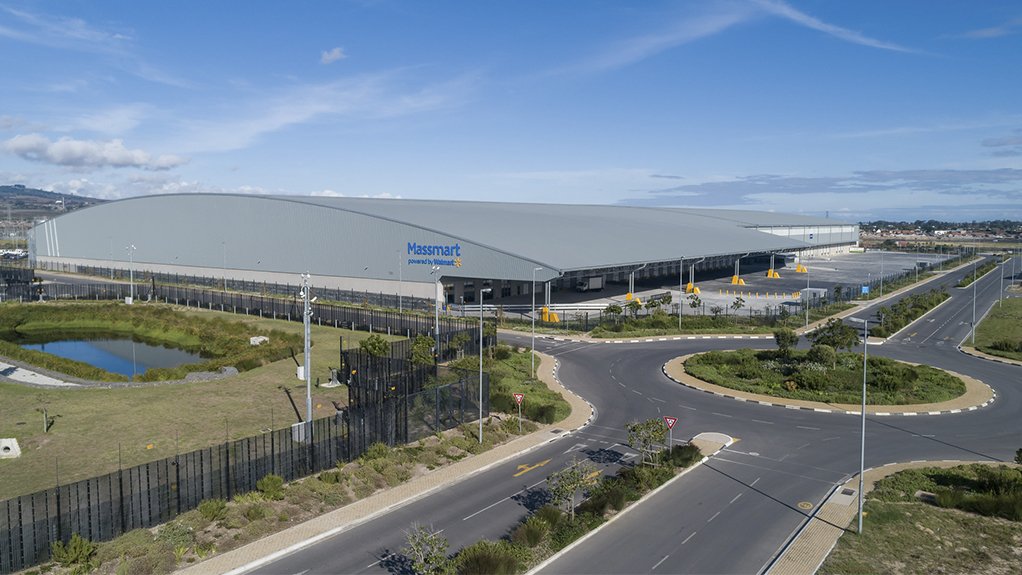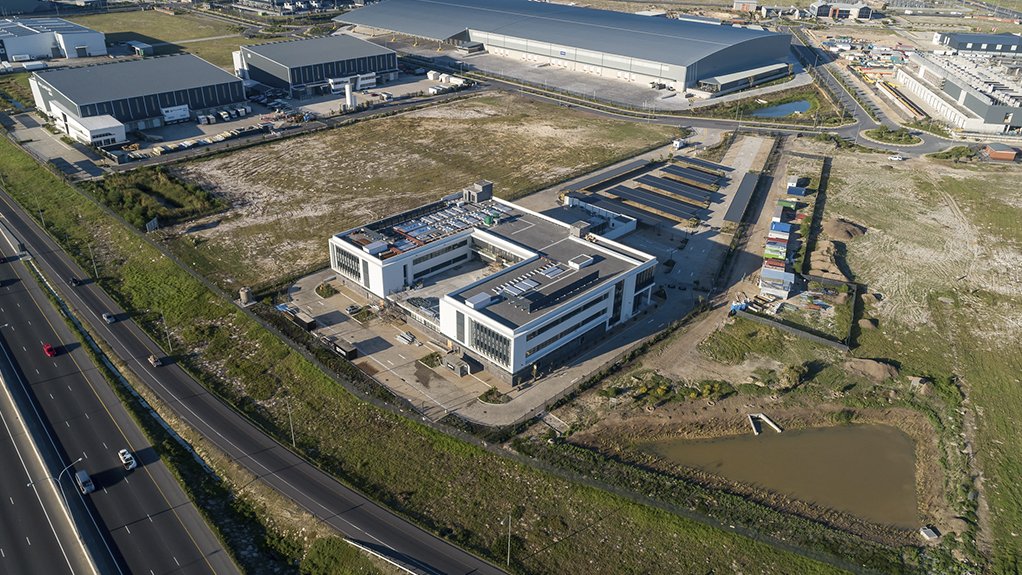The industrial real estate sector has shown resilience during a period that has proven to be most volatile for the office property and retail sectors, says JSE-listed real estate investment trust Redefine Properties national asset manager for industrial Johann Nell.
The resilience is a result of a shift towards a more digital world, changes in online shopping behaviours and an increase in manufacturing activity.
The industrial property sector was also steadied by the growing demand for prime serviced industrial land with access to large power grid capacity for data centres.
The manufacturing sector – usually negatively impacted on by recessionary pressures – has performed well during the pandemic. Global supply chain disruptions, owing to Covid-19, have accelerated the trend towards increased domestic manufacturing, enabling local manufacturers to increase their market share.
“Another positive consequence of the disruption caused by Covid-19 has been the potential for onshoring. This trend is already gaining traction in Europe, benefitting countries such as Poland,” explains Nell.
Onshoring involves bringing manufacturing closer to consumption. This will largely eliminate dependencies on third-party suppliers in far-flung countries, in addition to job creation in the local economy.
However, the tourism and hospitality industry has incurred significant losses, owing to Covid-19-related lockdowns and closed borders.
“Owing to the major disruptions imposed by the Covid-19 pandemic, Redefine Properties has, based on merit, responded by restructuring leases. This has been done by adjusting rentals in the short term in exchange for longer lease periods,” says Nell.
Prior to and during the pandemic, Redefine Properties has been investing in its industrial portfolio. The investment pertains to meeting changing preferences because of automation, consolidation and business rightsizing to maintain and improve operating margins.
While Redefine Properties’ industrial core portfolio net asset value has increased marginally in the short term, the company is handling an increasing number of enquiries for warehousing units amid post-Covid-19-lockdown market recovery.
Redefine Properties’ national footprint of warehousing and logistics properties is more than 920 000 m2.
The company has been adding to this number through new developments, housing clients such as online retailer OneDayOnly, retail company Massmart, vehicle spares and accessories supplier Sparepro and retail chain company Pepkor.
“We work closely with industry leaders in industrial engineering and logistics building design to ensure that we remain aware of new trends in materials handling technology that need to be accommodated now and in the future,” explains Nell.
Technological trends that need to be accommodated include better industrial floors, joint technology, higher eaves and more energy efficient light installations in line with improved sustainability.
Redefine Properties remains focused on delivering value to stakeholders through the day-to-day hands-on management of its product offering, consistent long-term returns through the adoption of new trends in building design innovations, such as solar solutions, and reducing its carbon footprint.
While the pandemic accelerated local manufacturing, the real estate demands of importing companies and distributors into Africa continue to drive the demand for efficient warehousing space.
In 2020, South Africa imported goods worth $69-billion, ranging from fuel, machinery and automotive vehicles to pharmaceuticals, plastics and food.
Demand for industrial space has also increased, notably from the Department of Trade, Industry and Competition-, and Industrial Development Corporation of South Africa-funded initiatives.
The initiatives in food, agriculture and heavy engineering for local and export markets will also drive the need for space and set up the industrial sector for more investment.
However, overcapitalising on these new trends could prove counterproductive, warns Nell.
Development costs are starting to increase, owing to recent tariff hikes in steel and cement prices, while a rise in secondary warehouse vacancies is creating unrealistic rental expectations.
“From a Redefine perspective, we remain focused on finding the right tenant for the right property in the right location, thereby adding mutual value and sustainability in the long term,” concludes Nell.
Edited by: Zandile Mavuso
Creamer Media Senior Deputy Editor: Features
EMAIL THIS ARTICLE SAVE THIS ARTICLE
ARTICLE ENQUIRY
To subscribe email subscriptions@creamermedia.co.za or click here
To advertise email advertising@creamermedia.co.za or click here















